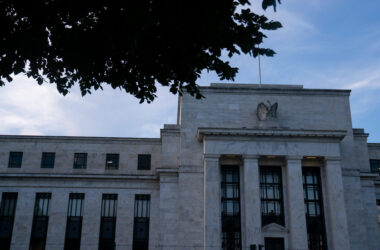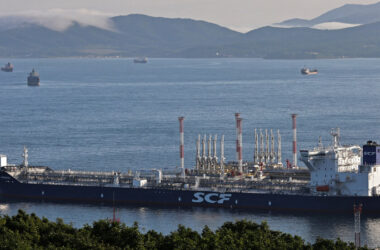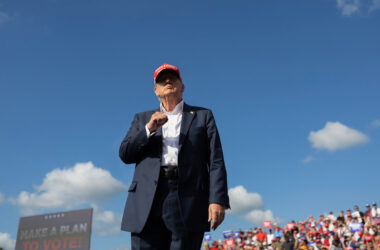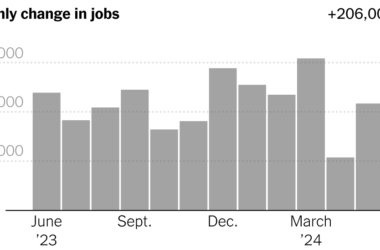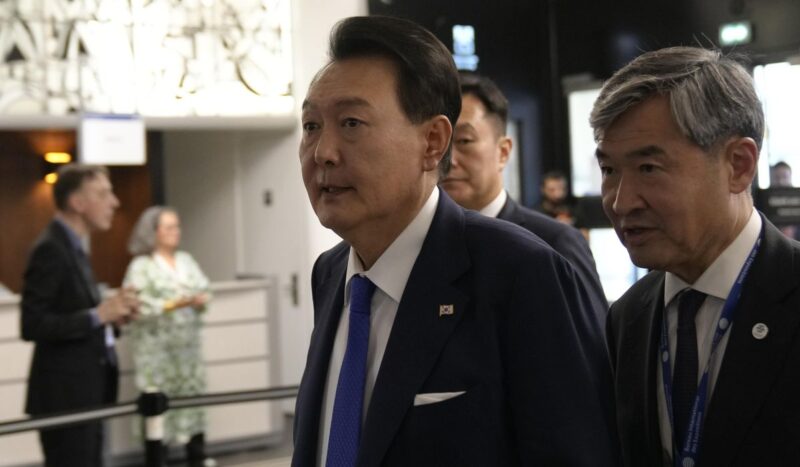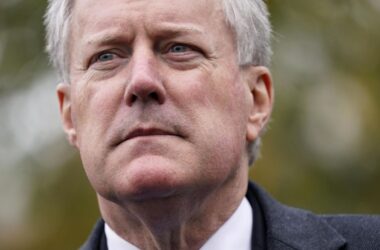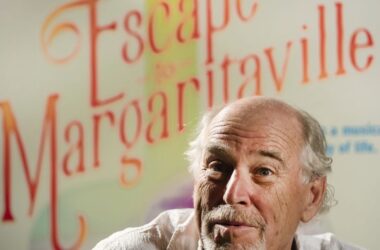SEOUL, South Korea — As the South Korean southeastern port city of Busan awaits the outcome of a Tuesday vote that will decide the host city for the 2030 World Expo, a series of last-minute events are underwriting its bid.
Representatives of the 168 member states that comprise the Bureau International des Expositions meet in Paris to cast their votes for the right to stage the prestige event.
Rome is among the finalists, but most observers here say the contest is down to Busan, South Korea‘s second-largest city, and Riyadh, the bottomless-pocketed capital of Saudi Arabia. It’s an intriguing clash that pits an East Asian champion of democratic governance, industrial muscle and pop culture against an Islamic state that is spending hundreds of billions on attracting global events to broaden its image and economy beyond its vast oil riches.
World expos – the first was staged in London in 1851 – are held every five years. Aiming to showcase potential solutions to humankind’s challenges, they can draw tens of millions of international visitors and serve as a showcase for the host city.
On Sunday, Busan made global news as the senior diplomats of China, Japan and South Korea huddled in the city for a high-profile trilateral aimed at turbo-charging economic cooperation.
That rare gathering came two days after South Korea’s globe-trotting president, Yoon Suk-yeol, pitched the city’s case directly to BIE executives in Paris. Mr. Yoon arrived in the French capital directly from a glittery visit to London, where he had been welcomed by King Charles II on the first state visit of the monarch’s reign.
Although the wooing campaign has gone on for years, Busan‘s bid has been boosted by some last-minute developments.
On Nov. 21, a group of 15 human rights organizations, including Democracy for the Arab World Now, Freedom House and the Human Rights Foundation, published an open letter to the BIE calling for a rejection of Riyadh’s bid, citing what they said was Saudi Arabia’s “history of violating basic human rights and curbing freedoms.”
Among the troubling items on Saudi Arabia’s record: judicial abuses, including some of the highest rates of execution rates on earth, a history of imprisoning political opponents, and and the lack of gender equality.
“We strongly believe that Saudi Arabia’s systematic practice of human rights violations does not align with the BIE and World Expo’s values,” the letter stated. “The kingdom cannot ‘find solutions to global challenges facing humanity,’ nor can it ‘favor progress’ when its domestic human rights record is ridden with its own challenges that are, on the contrary, regressive.”
Despite the letter, BIE members from across the Islamic world – currently united behind the Palestinian cause – are expected to back the Saudi bid, and Riyadh has shown it is not shy about spending money to improve its international image.
The Saudi government has reportedly invested some $1 trillion in luring global events. It joined the Formula 1 Grand Prix circuit in 2021, and has won the right to host the a world heavyweight boxing championship, the 2029 Asia Winter Olympics and the soccer’s 2034 World Cup.
South Korea’s edge
For its part, South Korea can boast a strong record for hosting global events, including the 1988 Summer Olympics, the 2002 soccer World Cup and the 2018 Winter Olympics.
But Seoul is not part of any global religious, political or economic bloc. It is pitching for 2030 on the grounds of its potential as a role model for developing nations around the world, given its successful embrace of industrialization and democratization in recent decades.
“Korea has dedicated itself to education, nurtured scientific advancements and blossomed culturally throughout its history, and these experiences can be realized anywhere in the world,” Mr. Yoon said in his Paris pitch. “Korea seeks to share its developmental experiences with the international community and take the lead in addressing challenges facing humanity, such as climate crises and Global South issues.”
Under the banner of “Transforming Our World, Navigating Toward a Better Future,” Busan’s proposed expo themes relate to climate change, digital transformation and inequality. Typically for a nation in which big business and the government have worked closely together over the years, Korea Inc. has joined the South Korean government in pushing Busan‘s prospects.
Chey Tae-won, chairman of SK Corp., which runs top telecommunications and chip-making companies, talked up the nation’s values.
“Ours is a country steeped in rich tradition and core democratic principles, committed to improving the worldwide standard of living through forward thinking and technological advancement,” Mr. Chey told The Washington Times via email, adding South Korea wanted to pay back nations that helped rise from the ashes of the Korean war to its current status as a global economic force.
“As a hub of innovation, technology and a critical node in the global economy we feel it is our responsibility to give back to an international community that many years ago helped us in our hour of need,” Chey stated.
South Korea‘s “soft power” — the global impact of such cultural exports as K-pop and the hit series “Squid Game” — could also have an impact in Paris.
“We are not used to having adoring fans from around the world,” South Korea’s Ambassador for Cultural Cooperation Sohn Ji-ae told foreign reporters last week. “We shall see how strong it is when the votes are in, but I believe soft power is on South Korea’s side.”
Busan waits
While the Expo provides an opportunity to project South Korea to the world, Busan has its own reasons to seeking the right to host the Expo. Busan is home to 3.4 million persons and boasts the country’s largest port, its most famous beach and East Asia’s leading film festival.
But long-held hopes for an undersea tunnel to Japan have gone nowhere and a plan for the city to unite administratively with its neighboring provinces has foundered. Though it is a maritime, regional logistics hub, Busan still lacks an airport with true global reach.
Above all, Busan resides perennially in Seoul’s shadow.
The capital – South Koreans jokingly call it “The Republic of Seoul” – houses almost half of the 51 million-strong population within its vast urban sprawl and satellite cities. Despite over a decade of decentralization efforts, Seoul remains the country’s leading hub for education, culture and industry: South Korea’s world-class tech and chip belt stretches south from Seoul.
Busan Mayor Park Hyeon-joon argues that attracting the expo to his city will have a “rebalancing” effect on the national geography, but there are obstacles.
Japan’s port city of Osaka hosts the 2025 World Expo. Whether the BIE will want two East Asian coastal cities hosting back-to-back expos remains to be seen.
South Koreans united behind the bid to host the 1988 Summer Olympics to showcase their newly industrialized country. They displayed enormous passion for the 2002 World Cup, jointly hosted with national rival Japan, as they showed off their nascent pop culture. And the 2018 Winter Olympics provided an opportunity to engage North Korea.
However, on the streets of Seoul today there is little sign of any great enthusiasm for World Expo 2030. It is not clear what national mission it fulfills – nor whether it justifies massive investment.
“The World Cup and the Olympics were sports events which make it easier for the world to understand: Expos are a little different,” Ms. Sohn said. “But it is very good for any country to be exposed to the international community, so if Korea gets the expo, [it will be] positive momentum.”
